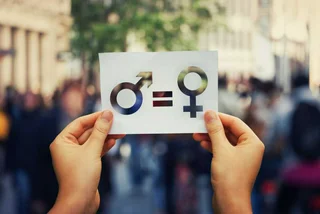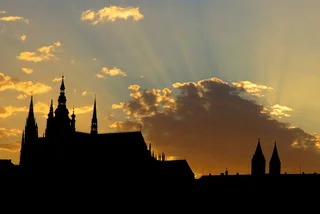The first results of last year’s Czech census are in, and among the key findings is the news that foreigners now make almost 5 percent of the Czech population.
The population of the Czech Republic has increased by 87,600 over the past 10 years to reach 10,524,167, according to details released by the Czech Statistical Office (ČSÚ). The previous census took place in 2011.
Foreigners account for 4.7 percent of the population or just under half a million people. Citizens of Ukraine had the highest share, at 1.4 percent, followed by Slovakia, at 0.9 percent, and Vietnam, at 0.5 percent. The number of foreigners increased compared to the 2011 census, but the rate of increase was slower. Prague has the lowest share of the population with Czech citizenship, at 86.1 percent.
A voluntary question on national self-identification was also answered by 68.4 percent of the population. On this question, 83.8 percent declared Czech nationality, while 5 percent claimed to be Moravian, and 0.2 percent Silesian, totaling 89 percent. Among foreign nationalities, people most often identified as Slovak, at 1.3 percent, Ukrainian, at 1.1 percent, and Vietnamese, at 0.4 percent. Some 18,000 people declared Czech and European nationality at the same time.
Almost half of the population is concentrated in four of the 14 Czech regions: Prague, Central Bohemia, South Moravia, and Moravia-Silesia.
There is a slight gender gap, with women accounting for 50.7 percent and men in the minority at 49.3 percent. Of people aged 15 and over, 32.1 percent were single and 45.6 percent married. Widows accounted for 13.3, while men who outlived their spouses were 2.9 percent.
The population is also getting older. The average person is 42.7 years old, up by 1.7 years. Prague has the lowest average age, at 41.4 years. The number of people over the age of 65 has also grown, reaching 2.1 million, half a million more than in 2011. One out of five people is at retirement age, and there are fewer people of working age. The generation referred to as Husák’s children, born in the 1970s, remains the most numerous group.
“In the Czech Republic, the proportion of people with higher levels of education continues to grow,” Robert Šanda, who was responsible for the 2021 census, said at a press conference.
Over 1.5 million adults have a university degree. This amounts to 18.7 percent, while 10 years ago it was 13.2 percent. Women are more educated than men. In the previous census, there was a higher proportion of university students among men; now the opposite is the case.
There were also more people with a high school diploma (maturita), now some 53.1 percent of people over the age of 15. About a third of the population has secondary education without a diploma or apprenticeship certificate.
A voluntary question on faith was answered by 69.9 percent, which was more than in the previous census. Under one-fifth, or 18.7 percent, declared that they were believers and belonged to a church or religious society. Among the believers, the Roman Catholic Church was the most represented faith, at 741,000 or 10 percent of all respondents. But 68.3 percent claimed to be without religious faith.
Some people meanwhile claimed that they feel the Force, from the Star Wars film series, to be their religious faith, identifying as "Jedi."
“The number of Jedi has increased slightly. In the last census, there were 15,000 of them, now it is slightly more than 21,000. There were only 516 Sith, though, so the Force is unbalanced,” ČSÚ’s Šanda said.
Since 2011, some 195,000 houses have been added in the Czech Republic, adding up to 2,353,024 houses in the country. The last 30 years have seen an increase of more than 484,000 houses or about a fifth of the total housing stock. About one in four houses dates back to before 1946. Individuals own 88.4 percent of all houses, with the second most common type of ownership being a cooperative, concerning 146,799 houses.
Last year's census took place online for the first time. It began on March 27 and ended on May 11. The ČSÚ received 4.2 million completed electronic and more than 683,000 paper forms. The census was mandatory, but one person could submit a form for the whole household.












 Reading time: 3 minutes
Reading time: 3 minutes 





























